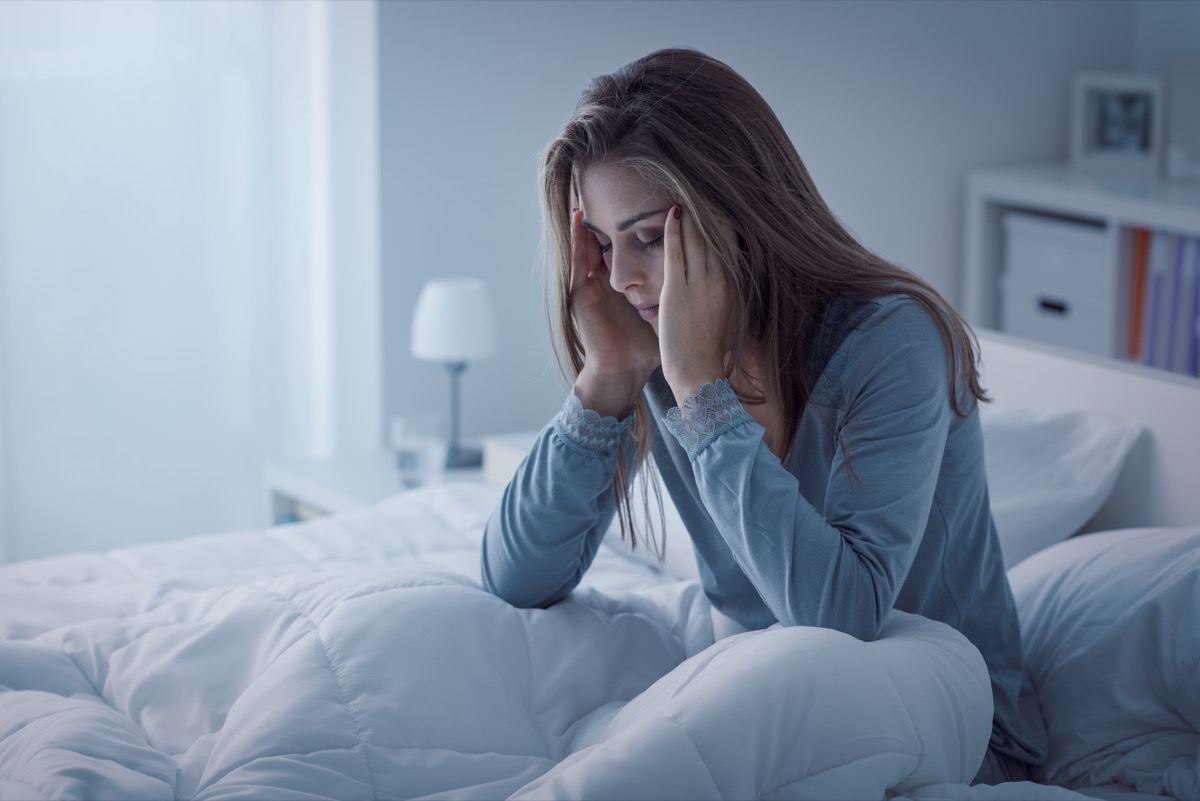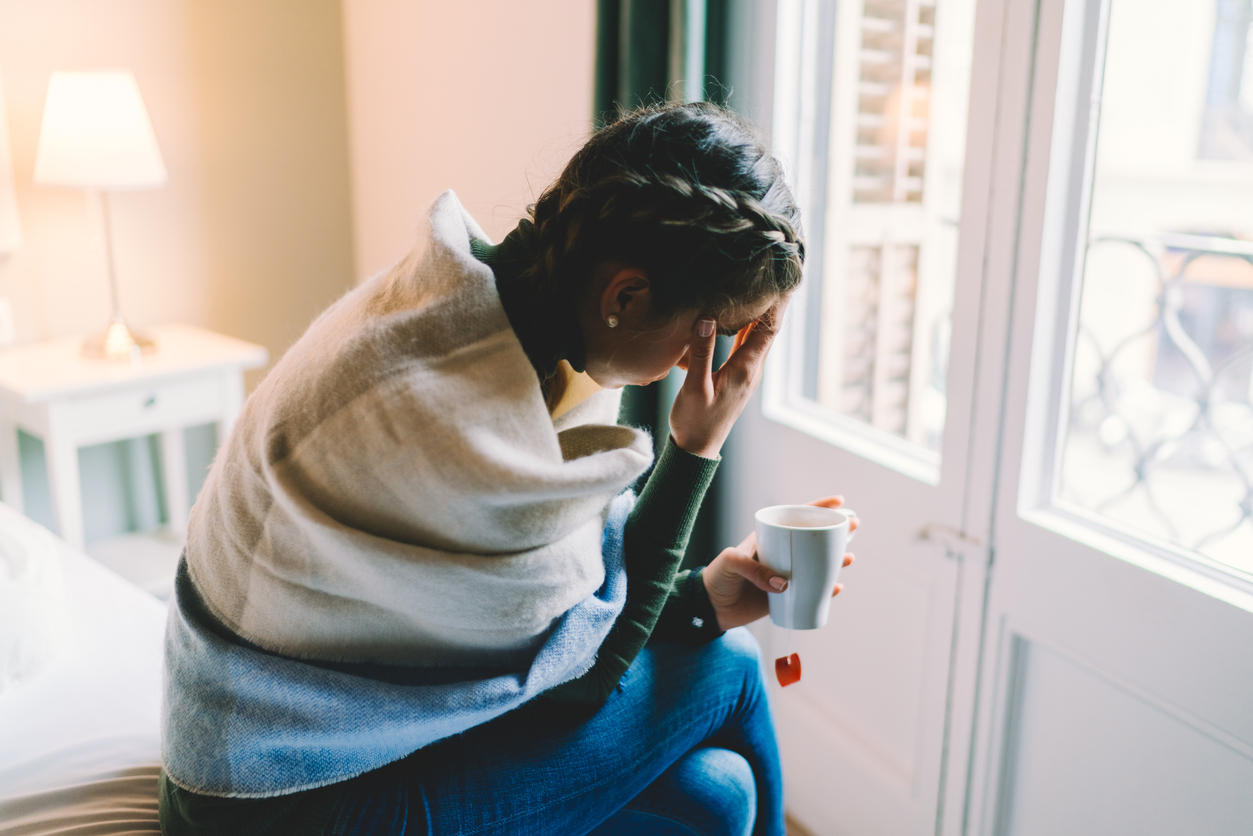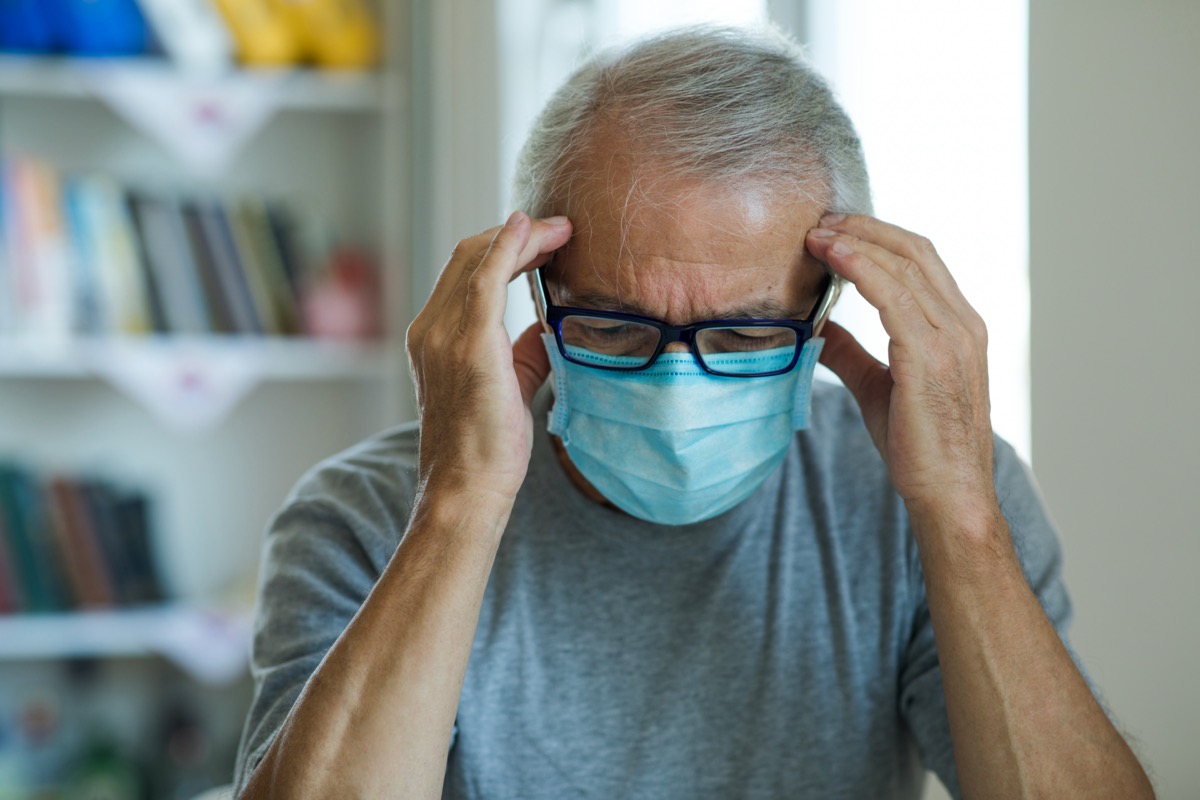In a new feature in the The New York Times, doctors outline instances of patients experiencing psychotic symptoms following their recovery from COVID, including hearing voices, paranoia, delusions, homicidal ideation, hallucinations, and violence. For more information about these frightening effects of COVID, read on, and for more long-term symptoms, check out The “Really Disturbing” Long COVID Symptom Doctors Want You to Prepare For. Read the original article on Best Life. Many of the patients who develop these symptoms had very minimal COVID symptoms during the illness. Psychiatrist Hisam Goueli, MD, told The Times that the patients he treated with psychosis didn’t experience any respiratory complications, but they did have subtle neurological symptoms such as hand tingling, vertigo, headaches, or a loss of smell. Goueli said that anywhere from two weeks to a few months later, patients are developing “this profound psychosis, which is really dangerous and scary to all of the people around them.” And for more up-to-date information delivered straight to your inbox, sign up for our daily newsletter. The New York Times reports that COVID patients who demonstrate psychotic symptoms tend to be in their 30s, 40s, and 50s, which is generally an uncommon time to develop psychosis. Goueli said the symptoms he’s seen more commonly coincide with schizophrenia in young people or dementia in older people.ae0fcc31ae342fd3a1346ebb1f342fcb He also points out that many patients are aware of their own psychosis, which is abnormal. Usually, “people with psychosis don’t have an insight that they’ve lost touch with reality,” said Goueli. To learn about another odd COVID symptom, check out This Strange Symptom Could Be the Only Sign You Have COVID, Study Says. While patients developing severe psychiatric symptoms after recovering from COVID is not all that common, it does demonstrate the breadth of the kind of havoc the virus can wreak on the body. An October study published in the journal The Lancet Psychiatry found evidence that around 7 percent of COVID patients with psychiatric complications—10 out of 150—were experiencing “new-onset psychosis.” Beyond severe psychotic symptoms, COVID has also been known to have other psychological effects, including depression and anxiety. A November study also published in The Lancet Psychiatry found that COVID patients “appear to be at increased risk of psychiatric sequelae, and a psychiatric diagnosis might be an independent risk factor for COVID-19.” To see if you have this tell-tale coronavirus symptom, check out If You Have This Symptom, There’s an 80 Percent Chance You Have COVID. Although experts have yet to identify the cause of the psychotic symptoms following COVID, they hypothesize they’re a result of inflammation or the body’s immune response to the virus. “Some of the neurotoxins that are reactions to immune activation can go to the brain, through the blood-brain barrier, and can induce this damage,” Vilma Gabbay, MD, the co-director of the Psychiatry Research Institute at Montefiore Einstein, told The Times. According to The Times’ reporting, experts suggest some patients may develop psychosis due to their genetic makeup or an undetected predisposition for mental illness. Brian Kincaid, MD, medical director of psychiatric emergency department services at Duke, said a patient he saw develop psychosis also once had a skin reaction to another virus. Kincaid told The Times that this could suggest the patient’s immune system goes into overdrive when responding to viral infections. While psychotic symptoms may seem like a strange complication from a virus, it’s not unprecedented. Jonathan Alpert, MD, chairman of psychiatry and behavioral sciences at Albert Einstein College of Medicine, told The Times that he and his colleagues think “that it’s not unique to COVID.” A February article published in the journal Frontiers in Psychiatry backs up this notion. The researchers compiled information about psychosis documented during multiple pandemics from the 1918 flu to the 2009 swine flu. “Associations between influenza infection and psychosis have been reported since the eighteenth century,” the authors wrote. “It is important to emphasize that infection has been linked with increased risk of several psychiatric disorders.” To see if you have this subtle sign of coronavirus, check out This Is One of the Most “Easily Overlooked” COVID Symptoms, Experts Warn.





